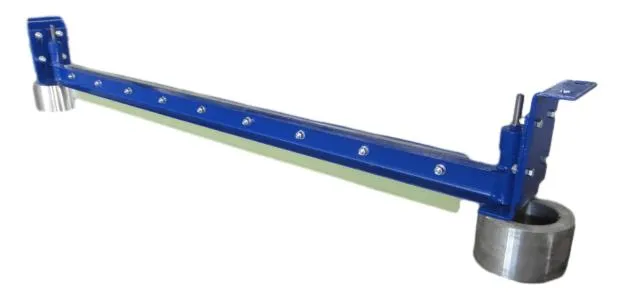 Afrikaans
Afrikaans  Albanian
Albanian  Amharic
Amharic  Arabic
Arabic  Armenian
Armenian  Azerbaijani
Azerbaijani  Basque
Basque  Belarusian
Belarusian  Bengali
Bengali  Bosnian
Bosnian  Bulgarian
Bulgarian  Catalan
Catalan  Cebuano
Cebuano  Corsican
Corsican  Croatian
Croatian  Czech
Czech  Danish
Danish  Dutch
Dutch  English
English  Esperanto
Esperanto  Estonian
Estonian  Finnish
Finnish  French
French  Frisian
Frisian  Galician
Galician  Georgian
Georgian  German
German  Greek
Greek  Gujarati
Gujarati  Haitian Creole
Haitian Creole  hausa
hausa  hawaiian
hawaiian  Hebrew
Hebrew  Hindi
Hindi  Miao
Miao  Hungarian
Hungarian  Icelandic
Icelandic  igbo
igbo  Indonesian
Indonesian  irish
irish  Italian
Italian  Japanese
Japanese  Javanese
Javanese  Kannada
Kannada  kazakh
kazakh  Khmer
Khmer  Rwandese
Rwandese  Korean
Korean  Kurdish
Kurdish  Kyrgyz
Kyrgyz  Lao
Lao  Latin
Latin  Latvian
Latvian  Lithuanian
Lithuanian  Luxembourgish
Luxembourgish  Macedonian
Macedonian  Malgashi
Malgashi  Malay
Malay  Malayalam
Malayalam  Maltese
Maltese  Maori
Maori  Marathi
Marathi  Mongolian
Mongolian  Myanmar
Myanmar  Nepali
Nepali  Norwegian
Norwegian  Norwegian
Norwegian  Occitan
Occitan  Pashto
Pashto  Persian
Persian  Polish
Polish  Portuguese
Portuguese  Punjabi
Punjabi  Romanian
Romanian  Russian
Russian  Samoan
Samoan  Scottish Gaelic
Scottish Gaelic  Serbian
Serbian  Sesotho
Sesotho  Shona
Shona  Sindhi
Sindhi  Sinhala
Sinhala  Slovak
Slovak  Slovenian
Slovenian  Somali
Somali  Spanish
Spanish  Sundanese
Sundanese  Swahili
Swahili  Swedish
Swedish  Tagalog
Tagalog  Tajik
Tajik  Tamil
Tamil  Tatar
Tatar  Telugu
Telugu  Thai
Thai  Turkish
Turkish  Turkmen
Turkmen  Ukrainian
Ukrainian  Urdu
Urdu  Uighur
Uighur  Uzbek
Uzbek  Vietnamese
Vietnamese  Welsh
Welsh  Bantu
Bantu  Yiddish
Yiddish  Yoruba
Yoruba  Zulu
Zulu conveyor carrying roller
The Importance of Conveyor Carrying Rollers in Modern Industries
Conveyor systems have become a staple in various industries, playing a crucial role in the efficient transportation of goods. At the heart of these conveyor systems lies the conveyor carrying roller, an essential component that significantly impacts the overall performance and reliability of the conveyor. Understanding the importance of these rollers can help businesses enhance their operational efficiency, reduce costs, and improve safety.
What Are Conveyor Carrying Rollers?
Conveyor carrying rollers, often referred to simply as carrying rollers, are cylindrical structures mounted on the conveyor frame that support the conveyor belt. These rollers are designed to facilitate the movement of material along the conveyor system, ensuring smooth and efficient transport. They are typically made from durable materials such as steel, aluminum, or plastic, chosen for their strength and resistance to wear and tear.
Functionality and Design
The primary function of carrying rollers is to provide support to the conveyor belt while maintaining proper alignment and tension. When properly aligned, the rollers minimize friction, allowing for smoother movement of the belt and the material being transported. This is particularly significant in high-load applications, where excessive friction can lead to premature wear of both the belt and the rollers, ultimately leading to increased downtime and maintenance costs.
Carrying rollers come in various designs to accommodate different conveyor applications. The standard flat carrying rollers are commonly used in general material handling, while impact rollers are specifically designed to absorb shock and withstand heavy loads during the loading phase. Additionally, there are specialized rollers, such as trough rollers, which help in guiding the belt and retaining materials on inclined or declined conveyors.
conveyor carrying roller

Significance in Material Handling
The role of conveyor carrying rollers extends beyond mere support; they are critical in enhancing throughput and efficiency in material handling. In warehouses, manufacturing facilities, and distribution centers, the speed at which goods move can significantly influence productivity. High-quality rollers that reduce friction and improve belt tracking can help companies achieve faster processing times, leading to reduced lead times and improved customer satisfaction.
Moreover, the design and material of the carrying rollers contribute to the overall longevity of the conveyor system. Investing in durable rollers can prevent frequent breakdowns and the need for replacements. Businesses that prioritize quality in their conveyor components often realize substantial cost savings over time due to reduced maintenance and downtime.
Safety Considerations
Safety is another aspect where carrying rollers play a vital role. A poorly functioning conveyor system poses risks not only to the equipment but also to the personnel operating around them. Malfunctioning rollers can lead to belt misalignment, material spillage, and potential injuries. Utilizing reliable and well-maintained carrying rollers helps ensure that the conveyor system operates safely and efficiently, protecting both employees and the product being transported.
Conclusion
In summary, conveyor carrying rollers are indispensable components of modern conveyor systems. Their design, functionality, and material choices directly influence the efficiency, durability, and safety of material handling processes across various industries. Businesses that recognize the importance of these rollers are likely to experience improved operational performance, reduced costs, and enhanced safety for their workers. As industries continue to evolve and demand for efficiency increases, investing in high-quality conveyor carrying rollers will remain a key strategy for success.
-
Revolutionizing Conveyor Reliability with Advanced Rubber Lagging PulleysNewsJul.22,2025
-
Powering Precision and Durability with Expert Manufacturers of Conveyor ComponentsNewsJul.22,2025
-
Optimizing Conveyor Systems with Advanced Conveyor AccessoriesNewsJul.22,2025
-
Maximize Conveyor Efficiency with Quality Conveyor Idler PulleysNewsJul.22,2025
-
Future-Proof Your Conveyor System with High-Performance Polyurethane RollerNewsJul.22,2025
-
Driving Efficiency Forward with Quality Idlers and RollersNewsJul.22,2025





























